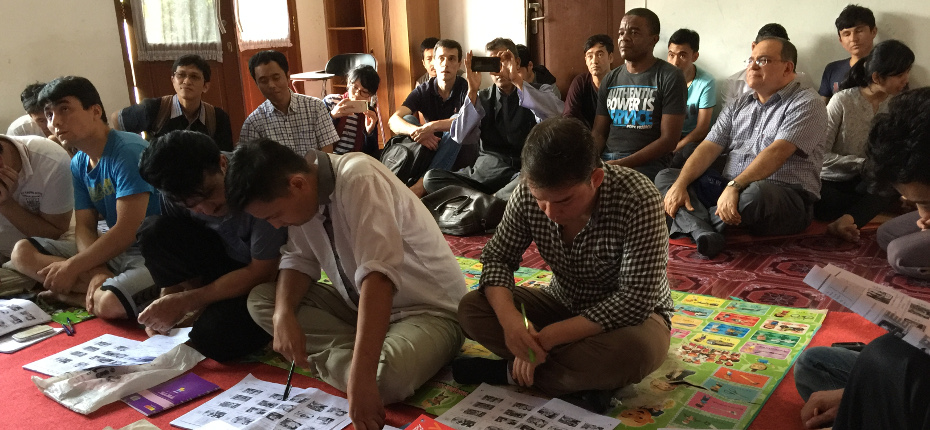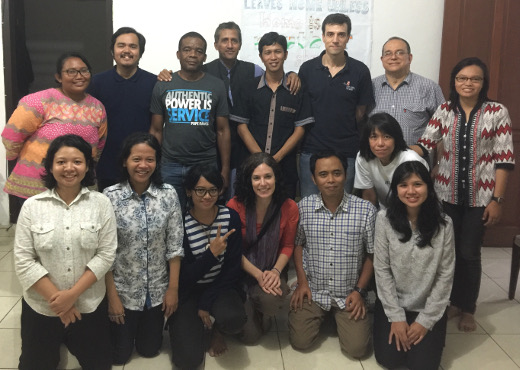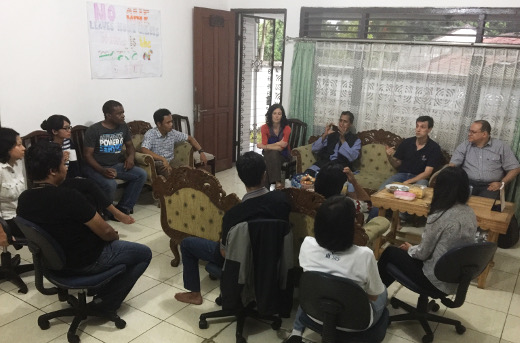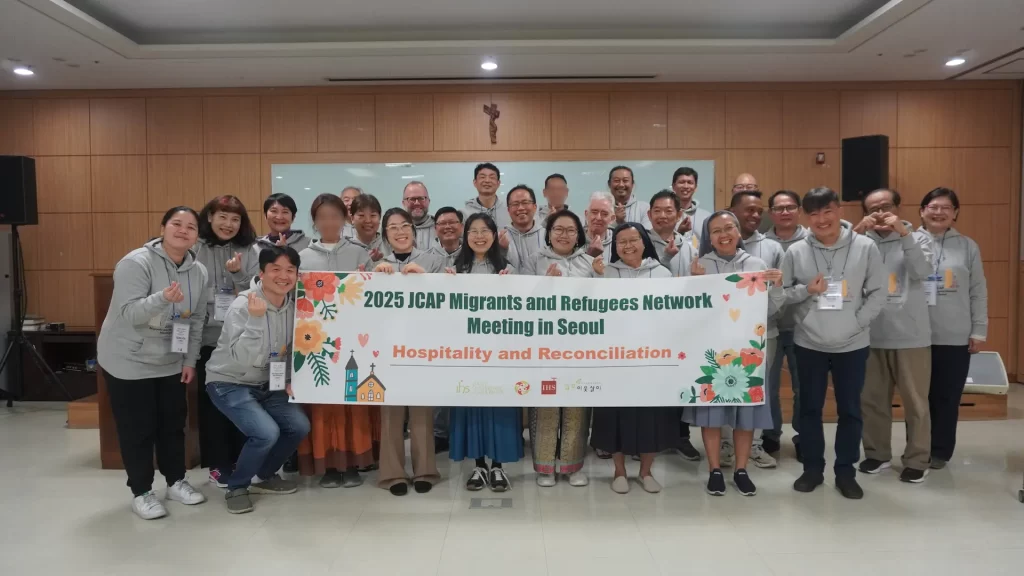
The members of the core group of the Global Ignatian Advocacy Network (GIAN) on migration met Sediqa when they visited a community of refugees and asylum seekers just outside Jakarta during their annual meeting which this year took place in Indonesia. The core group comprises a representative of each of the six Jesuit conferences and Fr Patxi Alvarez SJ, the outgoing Secretary of Social Justice and Ecology.
Real persons with stories like Sediqa’s put into perspective the work with migrants all over the world. And it is all the more pertinent when there is so much animosity and negative attitude towards them.
The encounter with refugees and asylum seekers also helped inject relevance and urgency in the life of the migration network. Of the original five GIAN concerns, four remain and the one on migration has been struggling for relevance. It is not that there is no real work on the ground. Quite the opposite. Various institutions and individuals in the Society of Jesus are doing a lot of work with migrants. Jesuit Refugee Service (JRS) is the celebrated face of this commitment, and it finds strength partly in its specific focus on refugees, asylum seekers and internally displaced people. Besides JRS, Jesuits also work with a whole range of other migrants such as overseas migrant workers, foreign spouses, and internal migrants displaced by development projects or environmental destruction.
Fr Benny Juliawan SJ, Coordinator for Social Ministries and Migration for the Jesuit Conference of Asia Pacific, describes the GIAN migration concern as a melting pot of diverse initiatives that has been struggling to develop common works and find a hub for the network. Except for JRS, most of the initiatives are independent, small and local in character. Some of them work closely with JRS and some others exist only as a desk or a contact person in the office of a local diocese.
“A functioning network needs a driver, a hub that connects and gives direction to the various elements. And at present this is found wanting,” said Fr Juliawan.

“As a global organisation, the Jesuits are present in many contexts and understand the situation on the ground. We can offer a rich perspective on the sufferings of these people and draw international attention to their cause,” explained Fr Juliawan.
A key strategy the core group identified during its February 21 to 24 meeting is to forge a closer collaboration across the board with JRS that also recognises the de facto refugee mandate and is open to working with other institutions to better respond to the needs on the ground. When vulnerable people are on the move, the duty to protect their dignity should not be limited by conceptual boundaries.
“General Congregation 36 calls for Jesuits and lay collaborators to build bridges, to be agents of reconciliation and justice,” said Fr Juliawan. “The battle now is really to challenge the animosity towards foreigners, the utilitarian outlook on human beings and nature, and to build new societies based on solidarity. Sediqa and her fellow Hazaras are tragic reminders of this urgency.”







